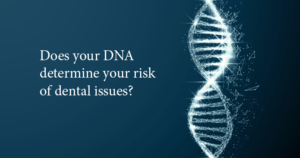Headaches and Dentistry
While reading on the web the other day I found this article about the correlation of the way your teeth come together and headaches. Our experience the past 10 + years that many of the headaches are muscle related and with proper alignment they are able to be reduces and allow better functioning in life. With the holidays approaching and increase in stress the is very relevant and something to consider if the headache issue becomes an overbearing problem. It has stimulated me to make the next few blogs focused on Neuromuscular Dentistry and how it can help you to function better and have improved quality of life. Please send me comments or check more information at our website www.davidjmartindds.com. Hope you enjoy.
SEATTLE, WA, February 09, 2009 /24-7PressRelease/ — If you have headaches on a regular basis, it is a good idea to tell your dentist about them. But why your dentist? Dentistry today concerns many aspects that go beyond just tooth mechanics. Depending upon the type of headache, their frequency, and their severity, there are a variety of medical reasons that this can be important information for your dentist. But most importantly, your headaches may be caused by an abnormal bite, and if so, your dentist can treat them more effectively than anyone else.
Headache is just one symptom that may be attributable to malocclusion (a bad bite). Other symptoms such as pain or noise in the jaw joint, facial pain, sensitive teeth, difficulty chewing, and neck pain may also be related to your occlusion, and should be discussed with your dentist.
Headaches are generally classified into several basic types: Sinus, Cluster, Tension and Migraine. You can determine which type you have by discussing it with your physician or dentist. While headaches are typically treated by your physician, improper occlusion (your bite) may play a significant role in certain types of headaches as well as other forms of head and neck pain.
One type of headache, tension headache, is by far the most common – estimated by some to be the cause of as much as 90% of all headaches. These are headaches that typically affect both sides of the head and often originate in, or pain is referred to, the muscles of your forehead.
If you only experience this type of headache occasionally, they are often controlled with over-the-counter pain medication. However, if they have persisted for a long period of time or other methods have failed to resolve them, it is wise to discuss them with your dentist.
HEADACHES AND YOUR BITE
Most people are not generally aware that the muscles of the temple area of the forehead are muscles that play an important part in the posturing and closing of the jaw. Don’t believe it? Put your fingers on your temple area and clench your jaw! If your occlusion (bite) is not right, it can lead to abnormal tension in these muscles- one of the several possible causes of tension type headaches.
If the bite is not corrected, the muscles may remain tense for long periods of time. The contracted muscle does not get a chance to rest and soon suffers from poor circulation – thus a lack of needed oxygen and the accumulation of waste products of metabolism. The result can be pain (headache).
DETERMINING IF THE BITE IS THE CAUSE
New technology now allows the properly trained and equipped dentist to objectively evaluate the state of these muscles and various other factors that may be affecting your bite. Based on this and other information obtained from physical examination, your dentist can rule in or rule out your bite as a cause of headache with a high degree of confidence. These tests are non-invasive and painless. If they do not indicate that the bite is the cause, the dentist will refer you to a physician for further diagnosis.
DENTAL TREATMENT OF HEADACHE
If the indications are that your bite is a major factor in causing your headaches, your dentist will generally recommend provisional or interim treatment. This involves fabrication of a custom made “orthotic”. An orthotic is a plastic appliance that is worn over, or fixed on, your teeth to adjust your bite to a physiologically correct relationship.
At this point, nothing permanent is done to alter your teeth or your bite. You would wear this appliance for a period of time to make sure the new bite position is correct before any consideration would be given to permanently altering your bite.
After having worn the provisional appliance for a time prescribed by your dentist, both you and your dentist will know for sure if the new bite position has resolved the headache problem. If it has, you will have several options open to you for long-term treatment.
Some of these options may include dental treatment to permanently alter your bite to the new position, fabrication of a more permanent type of orthotic, or using a TENS device to relax the muscles at those times that headaches are most bothersome.
Myotronics, Inc is the pioneer and industry leader of neuromuscular dentistry – its philosophy and equipment. For over 40 years, passion and a commitment to advancing the science of neuromuscular dentistry has been the central focus.
To find a dentist near you that has taken post-graduate training in this field, send an e-mail to: headaches@myotronics.com.
Source: Myotronics
Website: http://www.myotronics.com



I couldn’t agree more. For the first time in I don’t know how many years I can tell the difference between a sinus headache and a (normal not TMD) tension headache, all thanks to my fabulous neuromuscular dentist in Totowa. 🙂 Life-changing to say the least!